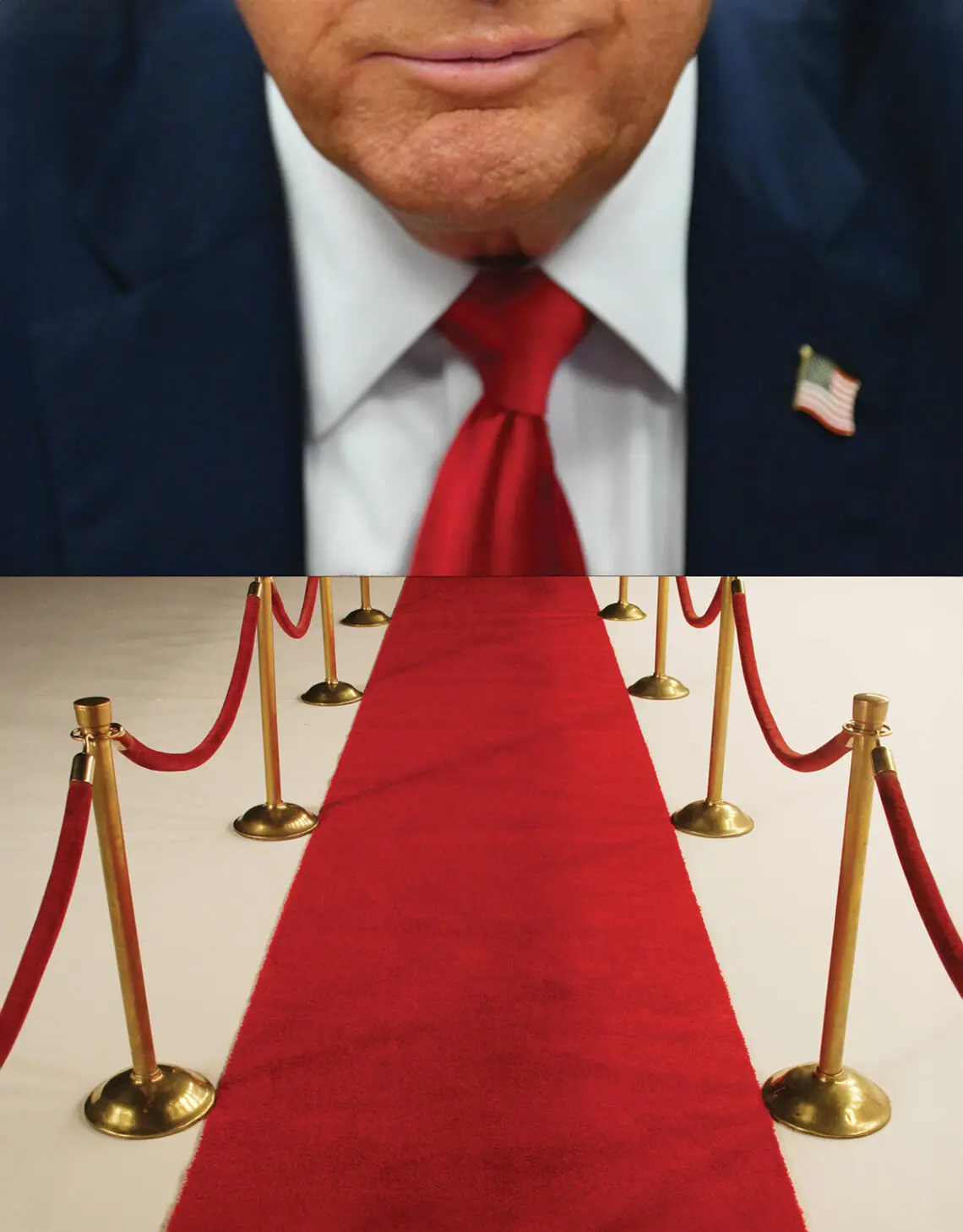Ali Abbasi’s Cannes triumph and Hollywood’s Trump anxiety
Director Ali Abbasi stood under the spotlight, basking in applause as his film, “The Apprentice,” received an eight-minute standing ovation at Cannes. Abbasi’s six-year journey to bring the film to life seemed finally fruitful. However, this warm reception could not melt Hollywood’s icy apprehension towards the politically charged content.
Treading on Trump
“The Apprentice” delves into Donald Trump’s early years as a real estate mogul and his association with lawyer Roy Cohn. The film uncovers some controversial elements, portraying Trump undergoing liposuction, abusing amphetamines, mishandling his casino, and raping his first wife, Ivana. Despite Cannes’ applause, this narrative proved too risky for major distributors.
Abbasi was initially optimistic, hoping the film’s success at Cannes would attract platforms like Netflix or indie studios. He believed a bidding war would commence after such an explosive reaction. But the major players in Hollywood didn’t dare touch the film amid Trump’s tight campaign for the presidency. This reticence underscored the industry’s reluctance to risk alienating a figure who could potentially regain political power.
Hollywood’s fear and confusion
Hollywood is replete with creatives who vocally support Kamala Harris and view Trump as a significant threat to their freedoms. The entertainment industry often leans Democratic, hosting rallies, fundraisers, and contributing personally to the campaign. Yet, the financiers of this art were frozen by fear — the fear of political retaliation and economic instability.
Schuyler M. Moore, a prominent entertainment lawyer, noted the palpable nervousness in Hollywood corridors. Studios and streaming services feared the repercussions of possibly offending Trump should he reclaim office. The ramifications were not solely hypothetical — Trump’s first term exhibited his readiness to use state mechanisms against perceived adversaries.
Trump’s first term: A mixed bag for Hollywood
Trump’s administration did bring some financial benefits to Hollywood. The 2017 tax cuts lowered corporate taxes and introduced perks like the ability for film and TV productions to immediately write off costs. This move saved giants like Disney and Comcast billions over four years. Trump’s strategy included lowering corporate rates further to 15% for firms producing domestically, contrasting with Harris’s plan to increase taxes on foreign income.
Navigating the murky waters of political ambitions
The Motion Picture Association (MPA), representing major Hollywood studios, has been lobbying to retain the benefits of Trump’s tax cuts, citing a significant increase in domestic film and TV production. Yet Trump’s confrontational stance with media conglomerates that own news operations posed consistent threats. Trump even considered measures perceived as retribution against broadcasters critical of his presidency.
Moore highlighted the industry’s struggle to balance benefits from tax relief against potential authoritarian measures. His pessimism is echoed by industry insiders who fear the broader consequences on democratic norms.
Mergers, antitrust laws, and the battle for survival
Hollywood stands at another crossroad with the impending election. Corporate consolidation remains a survival strategy for many companies, laden with debt and bracing for economic uncertainties. Both Trump and Biden administrations have shown different approaches to antitrust regulations. Trump’s revengeful streak contrasts sharply with Biden’s aggressive policies against corporate power, particularly in tech.
For studios such as Warner Bros. Discovery, already dealing with substantial debt, another merger could be a lifeline. The CEOs hope for a deregulation-friendly administration, enabling further corporate consolidation.
The looming specter of a trade war
Entertainment corporations not only depend on local economies but are deeply integrated into global trade networks. Trump’s proposed tariffs on all imports, especially from China, threaten to disrupt this fragile balance. Past tariffs showed a mixed impact, pushing production to other Asian countries rather than bolstering domestic manufacturing.
Experts suggest that a continuation of these protectionist policies would harm the global market, straining international alliances and undermining America’s role in the world economy. In contrast, Harris’s approach is likely to preserve the complexities of Biden’s tariffs, focusing them more strategically.
“The Apprentice”: An uphill battle for visibility
After months of uncertainty, “The Apprentice” finally secured a distribution deal with a smaller firm, specializing in politically sensitive content. Despite the relief of seeing his creation reach theaters, Abbasi remains troubled by the pervasive fear in America.
The narrative of his experience reflects a larger societal concern: how one individual can intimidate a vast population, stifling freedom of expression and creative risk. This scenario underscores Hollywood’s precarious position as it eyes the horizon of electoral outcomes.
Follow our coverage to stay informed on how the intersection of politics and entertainment continues to shape the industry’s future and share your thoughts on our social media platforms.

 Italian
Italian







